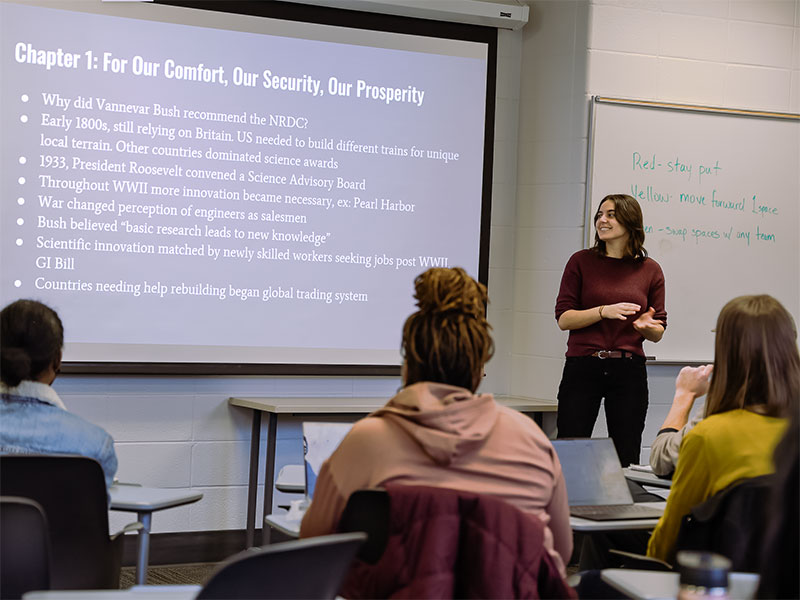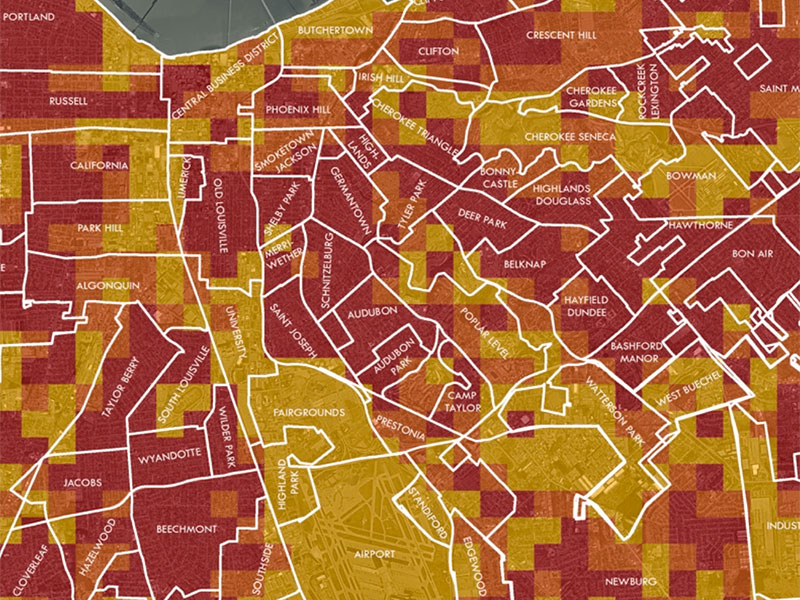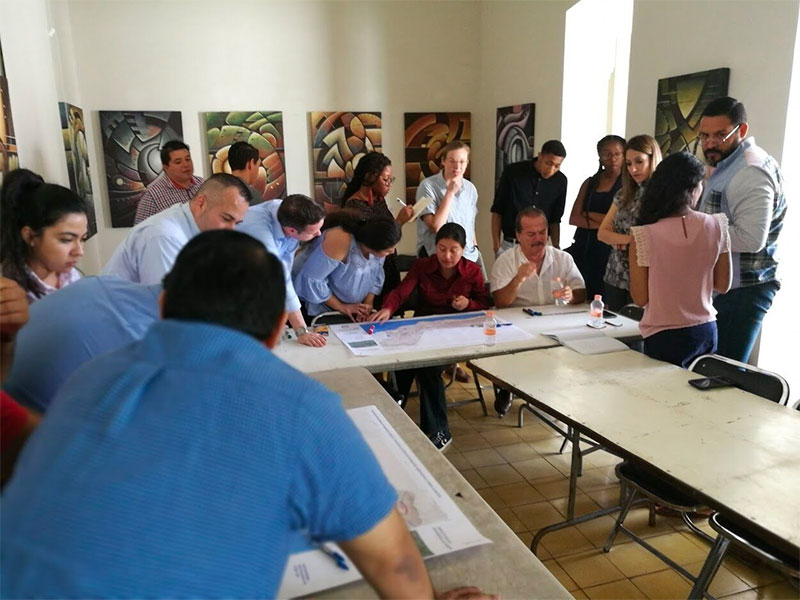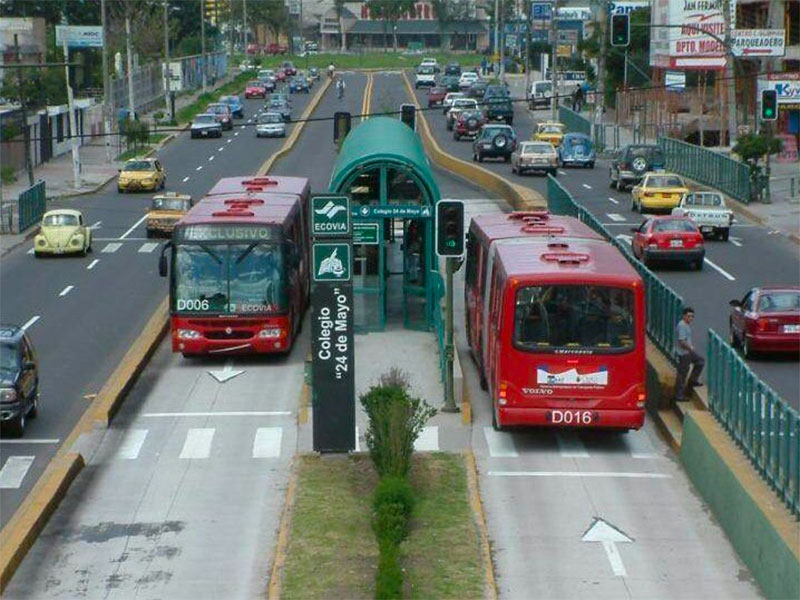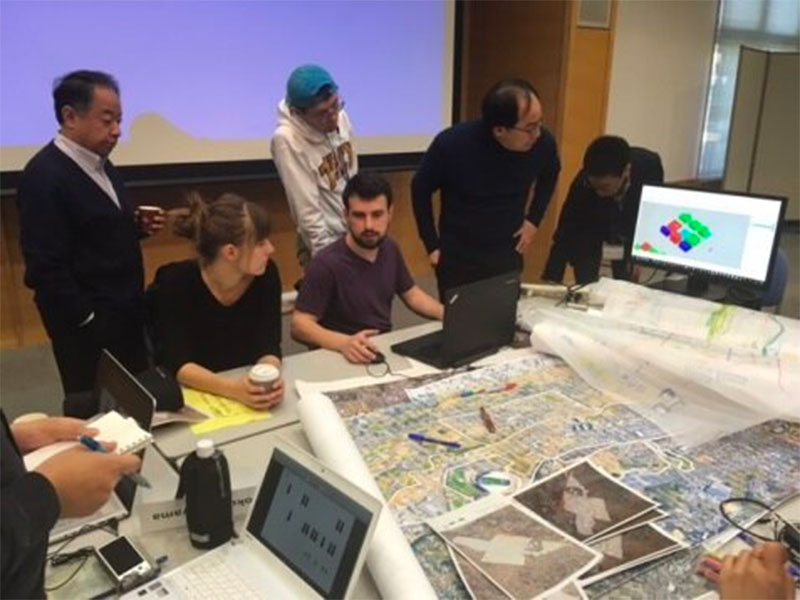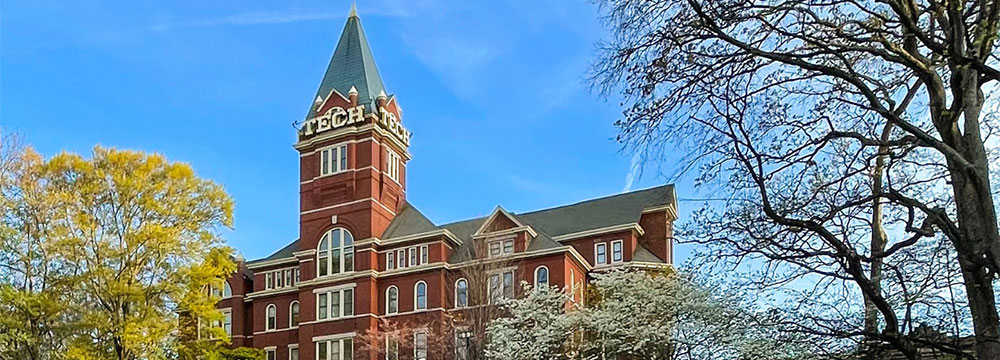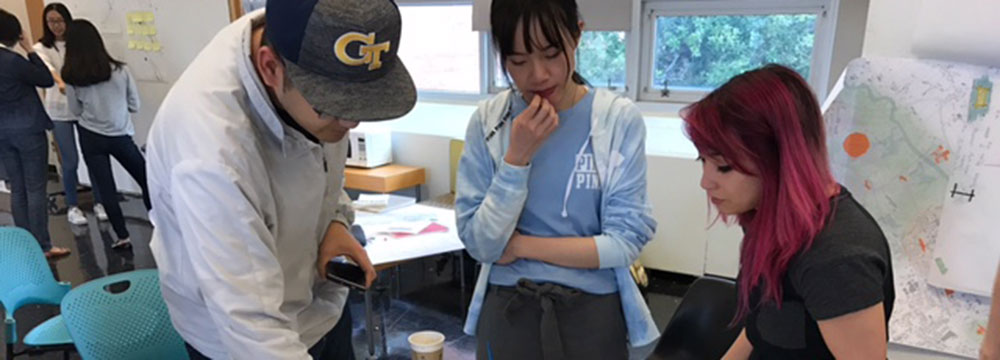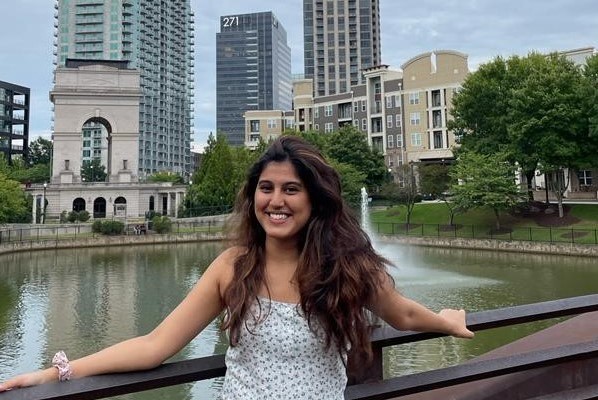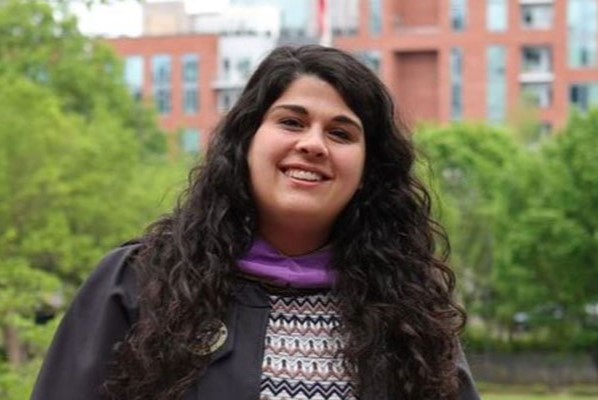| Typical 1st Year Fall | Hours | Typical 1st Year Spring | Hours |
|---|---|---|---|
| CP 6035 History and Theory of Urban Planning | 3 | CP 6037 Planning Law, Regulation and Implementation | 3 |
| CP 6036 Community Dynamics and Engagement | 2 | CP 6031 Economic Analysis of Planning | 2 |
| CP 6025 Advanced Planning Methods | 4 | Methods Distribution Requirement | 3 |
| CP 6514 Intro to Geographic Information Systems | 3 | CP 6514 Specialization or Elective Courses | 6 |
| Specialization or Elective | 3 | ||
| 15 | 15 |
| 2nd Year Fall Alternative 1 | Hours | 2nd Year Spring Alternative 1 | Hours |
|---|---|---|---|
| CP6055 Applied Planning Studio | 5 | CP8990 Applied Research Paper | 3 |
| CP8990 Applied Research Paper | 1 | Specialization or Electives | 11 |
| Specialization or Electives | 9 | ||
| 14 | 14 |
| 2nd Year Fall Alternative 2 | Hours | 2nd Year Spring Alternative 2 | Hours |
|---|---|---|---|
| CP8990 Applied Research Paper | 1 | CP6055 Applied Planning Studio | 5 |
| Specialization or Electives | 14 | CP8990 Applied Research Paper | 3 |
| Specialization or Electives | 6 | ||
| 15 | 13 |
CP6035: History and Theory of Planning (Fall)
Examines theories of planning and the public interest, the intellectual and historical development of the planning profession, and the roles of planners within political systems.
CP 6036: Community Dynamics and Engagement (Fall)
Study of theories and dynamics of community-building, with a focus on working in communities, equity and inclusive community engagement.
CP 6025: Advanced Planning Methods (Fall)
Study of analytical methods in planning including inferential statistics, linear regression, and analysis of variance, and how they are applied to planning problems.
CP 6514: Intro to Geographic Information Systems (Fall or Spring)
Introduces students to spatial analysis using geographic information systems. Examines fundamentals of software design and geographic data.
CP 6037: Planning Law, Regulation and Implementation (Spring)
Study of legal framework of planning focusing on managing development and increasing opportunity to achieve desired outcomes for the economy, society, and the environment.
CP 6031: Economic Analysis in Planning (Spring)
Applies economic principles to planning, including market theory, public goods, externalities, cost-benefit analysis, and project economics.
CP 6052: Applied Planning Studio (Fall or Spring)
Analyzes and prepares alternative plan(s) for an existing neighborhood, community, or region. Emphasizes application of planning skills in a real-world situation.
CP 7000 Master’s Thesis or CP 8990 Applied Research Paper
Two-semester sequence during second year
Research Design and Methods Distribution Requirement (Fall or Spring)
3 credit hours of methods selected from the following list. Other courses possible after approval by program director.
- CP 6005 Drawing for Planners
- CP 6006 Visualization for Plan
- CP 6024 Quantitative and Computer Methods
- CP 6521 Advanced Geographic Information Systems
- CP 6531 Introduction to Remote Sensing
- CP 6541 Environmental Analysis Using GIS
- CP 6542 Transport & GIS
- CP 6543 Public Health Analytics
- CP 6551 Spatial Analysis of Socioeconomic Data
- CP 6561 Geodemographics: Data Sources and Methods
- CP 6570 Socioeconomic GIS
- CP 6680 Citizen Participation and Community Engagement
- CP 6760 Negotiation and Conflict Management
- CP 8400 Research Design and Qualitative Methods
- CP 8505 Advanced Quantitative Research Methods for Planning, Policy and Design
- CP 888x. Special Topics in City and Regional Planning: Research Design and Methods
- PUBP 6112 Research Design in Policy Science
- PUBP 6218 Quantitative Models in Public Policy
Free Electives
Applied-Research-Paper-track students are required to complete at least 13 credit hours of free elective courses while Thesis-track students are required to complete 7 credit hours of electives. Free elective coursework can be selected among classes offered by the School of City and Regional Planning and those offered by any other Georgia Tech school or ARCHE partner universities, such as Emory University and Georgia State University. The elective module allows students to customize their degree to fit their interests as well as complete various graduate certificates or a second specialization track within the 55-credit-hour MCRP requirements.
Applicants complete Georgia Tech’s Graduate Admissions online application, which will prompt them to include all necessary application materials. The priority application deadline for fall semester admission, if an applicant wishes to be considered for merit-based departmental aid, such as fellowships and graduate research assistantships, is January 15th. All other applications can be submitted by the regular application deadline which is February 15th or the final (late) application deadline which is March 15. Admission decisions are communicated to applicants typically within a month of the application deadline. We encourage applicants to submit their application sooner rather than later - this gives the admissions committee enough time to reach out with questions or an interview invitation if necessary.
Application materials:
- Georgia Tech Application for Graduate Admission
- Answers to the following three questions:
- Describe your career ambitions. Present a sense of what you hope to accomplish with your city and regional planning degree, in what setting and how. Explain how you would use your planning studies to prepare yourself for these contributions.
- How have your prior studies, work and other experiences prepared you to be successful as a professional planner? Why is Georgia Tech the right place for your studies?
- Upon graduating from planning school, if you had 6 months and extensive funding to work on any planning-related issue of your choosing, on what issue do you think you would focus, what would you do for the 6 months, and why would you focus on that issue?
- Resume/Curriculum Vitae
- Three letters of recommendation.
- Official transcripts from all previously attended institutions of higher learning.
- Submitting Graduate Record Examination (GRE) Scores is optional yet encouraged, especially if an applicant wants to be considered for merit-based financial aid. If an applicant decides not to submit GRE scores they will be asked to make a case as to how their record demonstrates their strengths and proficiencies in quantitative, verbal, and analytic reasoning.
- Proof of English proficiency for applicants whose first language is not English: Test of English as a Foreign Language (TOEFL) with a minimum score of 100 or International English Language Testing System (IELTS) with a minimum score of 7.5. For complete outline of the English proficiency requirement and ways to get exemptions from testing, please see https://grad.gatech.edu/english-proficiency
Applicants typically demonstrate academic performance that meets or exceeds the following criteria:
- A 3.0-4.0 undergraduate GPA and a 3.5 - 4.0 master’s degree GPA if applicable.
- Graduate Record Examination (GRE) Scores of 150 for Verbal Reasoning, 150 for Quantitative Reasoning, and 4.0 Analytical Writing, if they elect to submit GRE scores.
- TOEFL iBT Scores, if applicable, with a minimum of 100 or comparable IELTS score.
We look for master's degree students who will successfully advance the quality of life in communities through planning work after graduation. Excellence in prior academic work is essential, and priority is given to applicants who have demonstrated effectiveness as leaders, analysts and/or designers in previous paid or volunteer settings.
Dual Degree applicants must be admitted to the MCRP program and the additional degree program separately. Please visit our dual degree webpage for more information, and refer to the other school's websites for information on their admissions process and requirements.
Students are admitted to the MCRP program to begin studies in the fall term. Applicants can be considered for spring admissions under unique circumstances such as those experienced by transfer students and dual degree students.
Cost:
The total cost of the program depends on a number of factors: whether a student completes the program full-time or part-time, whether they are eligible for in-state tuition or pay non-resident tuition, whether students are exempt or not from health insurance fees, and what housing, personal and other expenses a student incurs.
Residents of 15 southern US states other than Georgia are potentially eligible for in-state tuition for study toward city planning graduate degrees at Georgia Tech through the Academic Common Market
Current tuition and fee information is available on the Bursar’s website and current year costs estimates that include average housing, meal plan, books, personal, travel and other expenses are posted on the office of Scholarships & Financial Aid website.
International students’ total annual cost for the 2023-2024 academic year is projected to be $53,402 – including tuition, fees, cost of living and miscellaneous related expenses. The estimate for the 2024-2025 academic year is expected to be available for publication in May 2024.
Financial Aid:
The School of City and Regional Planning and Georgia Tech provide a range of financial aid programs to lower the education costs for our students. To learn about the various merit-based and need-based financial aid options, as well as obtain information about relevant internal and external fellowship and educational loan programs, please visit SCaRPs financial aid page.
All MCRP applicants who submit applications by the January 15 priority application deadline are automatically considered for merit-based aid, which is given primarily in the form of fellowships and graduate research or teaching assistantships.
Is the MCRP program STEM-designated?
The MCRP program itself is not currently STEM-designated; students for whom a STEM-designation is important due to funding or visa considerations often choose to apply for the MCRP+MS-GIST dual degree. The SCaRP Geographic Information Science and Technology degree is STEM-designated, thus the dual-degree is also STEM-designated.
Are there application fee waivers?
Georgia Tech offers application fee waivers to qualifying applicants. Comprehensive information on whether you qualify for the Institute-sponsored application fee waiver program and how to request one if you do is available here. The School of City and Regional Planning is additionally offering a limited number of department-sponsored application fee waivers to applicants who do not fall in the waiver categories described; If paying the application fee poses an undue financial burden to you and you do not qualify for an Institute-sponsored fee waiver, you may apply to be considered for a SCaRP departmental application fee waiver by completing this form before December 1st.
What are the different application deadlines and how do they affect my chances of admission?
January 15 - priority application deadline; applicants who want to be considered for departmental merit-based aid (graduate research assistantships and fellowships) need to apply by this date.
February 15 - regular application deadline; candidates are encouraged to apply by this deadline; it gives the admissions committee enough time to reach out with questions or an interview invitation if necessary.
March 15 - final (late) application deadline; we understand some applicants cannot meet the regular application deadline for a variety of reasons; we are able to accommodate late applications that are submitted by March 15. Please note we encourage you to submit by the February 15 regular deadline if possible, and if submitting after February 15 to submit as early as possible.
Your chances of admission are not affected by the date of application submission.
Is the MCRP program an online program?
The MCRP program is a residential, on campus program.
Can the MCRP program be completed by part-time students?
We encourage students who can devote their attention to the program full-time to do so. Yet, we realize that this is not possible for everyone and students can enroll part-time. If you plan to do this, please make sure that you discuss the implications this may have on financial aid options with the MCRP academic advisor.
Does the School of City and Regional Planning host an on-campus open house for prospective applicants?
Because of feedback from our current and past students, we have transitioned to offering several online information sessions, rather than a prospective student open house. If you would like to visit our campus before you apply, please email us. We also offer a virtual tour of campus. We do host an open house for admitted students.
Do we have to reach out to professors before applying to the program?
We are excited to e-meet you all, and at the same time, faculty receive high volumes of emails. You do not have to make contact with professors before you apply to the program. The admissions committee is very happy to see your name for the first time when they look through applications, and there is no downside to not contacting professors before you apply.
Can prospective students speak to current students or alumni?
Yes, of course! You can meet a panel of current students during fall info sessions and you can reach out to our Student Ambassadors – current students who volunteer to answer prospective student questions. Our program directors sometimes invite alumni to join them for the virtual info sessions. And some of our full-time and part-time faculty are SCaRP alumni!
Is there a Georgia Tech's frequently asked questions page a.k.a. FAQ?
You can find the Institute grad school application FAQ here.
What are the next steps for admitted MCRP students?
Congratulations! Our academic advisor will reach out to you shortly - if she hasn’t done so already - with information about our open house for admitted students, etc. In the meantime, please review this helpful information for accepted students page.

